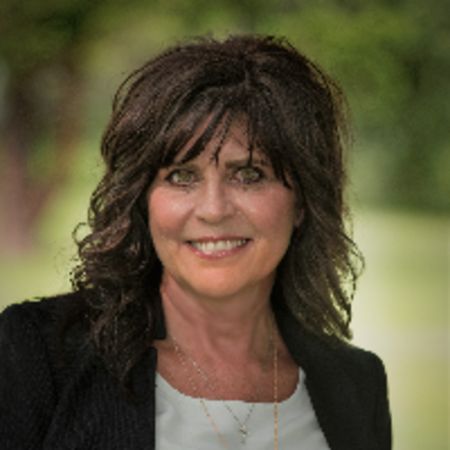Your Guide to OCD Therapy in Kansas City
Finding the right support for OCD in Kansas City can feel overwhelming—MiResource makes it easier. Explore the MiResource therapist directory to discover providers who specialize in OCD and align with your goals. The platform helps you find a good match based on your needs and location, so you can start therapy with confidence.
Learn more about OCD
Learn about OCD in Kansas City with general information on the condition, its signs, and its impact on daily life. This section also explains what someone can expect from therapy or treatment, including common approaches and care pathways.
What is OCD?
Obsessive-compulsive disorder (OCD) is a mental health condition involving unwanted, intrusive thoughts (obsessions) and repetitive behaviors or mental acts (compulsions) that a person feels driven to perform. Common symptoms include fears of contamination or harm, excessive checking, arranging, counting, and seeking reassurance, which can cause significant anxiety. OCD can interfere with school, work, relationships, and daily routines, making it hard to focus or feel present, even in Kansas City. If this sounds familiar, you’re not alone—support and effective treatments are available; learn more on our
OCD page
.
Why Seek Therapy for OCD?
Living with OCD can feel exhausting, but therapy offers proven ways to find relief and reclaim your life in Kansas City. Evidence-based therapies for OCD include
Exposure
and Response Prevention (ERP), Cognitive Behavioral Therapy for OCD (
CBT
, typically with ERP), Inference-Based CBT (I-CBT), Acceptance and Commitment Therapy (ACT), mindfulness-based approaches (such as MBCT as an adjunct), family-based CBT/ERP for children and teens, and group ERP/CBT. ERP and CBT help you face fears safely and resist rituals, reducing obsessions and compulsions; I-CBT targets the doubt and faulty reasoning at the core of OCD; ACT and mindfulness build flexibility and lessen the grip of intrusive thoughts; and family-based and group formats add support, reduce accommodation, and improve follow-through. With the right approach and a therapist who understands OCD, you can reduce
anxiety
, spend less time on rituals, and get back to what matters.
What to Expect from OCD Therapy
It’s normal to feel nervous starting OCD treatment, and we’ll work together to make a plan that fits you. Many people begin with Exposure and Response Prevention (ERP), where you gradually face feared thoughts or situations while learning to resist compulsions, guided step-by-step by your therapist. Cognitive Behavioral Therapy (CBT) helps you understand and reshape the thought patterns that fuel OCD, building practical coping skills you can use every day. Some clients also benefit from Acceptance and Commitment Therapy (ACT), which teaches you to relate differently to intrusive thoughts and move toward your values with less struggle. Throughout care in Kansas City, the process is collaborative, paced to your comfort, and personalized to your goals and life.
How to Find the Right OCD Therapist in Kansas City
Use the MiResource directory to search by condition and start with “Obsessive-Compulsive Disorder (OCD)” to see relevant providers in Kansas City. Next, refine your results by therapist approach (like ERP or CBT), experience working with OCD, accepted
insurance
plans, appointment availability, and proximity to your neighborhood. Review profiles to compare specialties, credentials, and session formats side by side. Remember that personal fit matters—read bios and consider your comfort and goals when choosing. MiResource makes comparing options simple so you can find the right match quickly. Explore the directory now.
Why Choose a Local Kansas City OCD Therapist?
Living with OCD in Kansas City can be shaped by the city’s close-knit, Midwest culture—where strong ties to faith communities, tailgates for the Chiefs, First Fridays in the Crossroads, and neighborhood pride from Brookside to the Northland create both support and social pressures. A local therapist understands how seasonal storms, severe weather alerts, and long playoff runs can disrupt routines and heighten anxiety, and how to work with KC’s unique rhythms, from Plaza holiday crowds to summer festival noise. They’ll tailor exposure work and skills to everyday KC realities—whether that’s navigating communal gatherings around barbecue or managing perfectionism in high-performing workplaces along the Downtown to Plaza corridor.
In-person therapy here is also practical: convenient access along the KC Streetcar line from River Market to Union Station, easy parking near Midtown and Westport offices, and flexible scheduling around I-35, I-70, and I-435 rush-hour patterns. Many clinicians cluster near the Country Club Plaza, the UMKC and KU Med areas, and in Johnson County and North Kansas City, making it simpler to pair sessions with errands or school drop-offs. For added support, residents can tap
NAMI Greater Kansas City’s education and groups
,
University Health Behavioral Health services
,
Missouri Department of Mental Health resources
,
Wyandot Behavioral Health Network in KCK
, and
Johnson County Mental Health Center
. You can also search OCD-specific providers and groups through the
International OCD Foundation
and check transit options via
RideKC
and the
KC Streetcar
to make consistent care more accessible.
Frequently Asked Questions
How do I know if I need a therapist for OCD?
You might benefit from therapy if intrusive thoughts or repetitive behaviors are taking up time, causing distress, or getting in the way of work, school, or relationships. Common signs include frequent checking, cleaning, mental reviewing, or seeking reassurance that feels hard to stop. If you’ve tried to manage on your own and feel stuck, or your world is getting smaller to avoid triggers, professional help can make a meaningful difference. Reaching out in Kansas City is a strong, hopeful step—many people feel relief once they get targeted support.
What if I don't feel a connection with my therapist? Is it okay to switch?
Yes—finding the right fit is normal and important, especially for OCD. A strong therapeutic alliance helps you feel safe practicing exposure and response prevention (ERP) and sticking with the plan. It’s okay to share what isn’t working and ask for adjustments or referrals. In Kansas City, you have options, and switching is a healthy way to advocate for your care.
Is online therapy as effective as in-person therapy?
For OCD, research shows that structured treatments like ERP can be effective both online and in person. Telehealth increases access in Kansas City, reduces travel time, and can help you practice skills in real-life settings at home. Some people prefer in-person sessions for accountability or comfort, while others value the flexibility of virtual care. The best choice depends on your preferences, symptoms, and practical needs.
What should I ask a potential OCD therapist?
Ask about their training and experience with OCD and ERP (e.g., how many clients with OCD they treat and their success rates). Clarify how they structure exposure work, how they involve loved ones if needed, and how progress is measured. Discuss logistics: availability, session length, cost and insurance, telehealth options in Kansas City, and between-session support. You can also ask about cultural responsiveness and how they tailor treatment to your goals.
Does therapy for OCD really work?
Yes—evidence-based therapies like ERP and CBT are highly effective for many people with OCD. Consistency, practice between sessions, and a good therapist fit strongly influence results. Many clients in Kansas City see meaningful reductions in symptoms and improved quality of life. Even if progress feels gradual, sticking with the plan typically leads to lasting gains.













